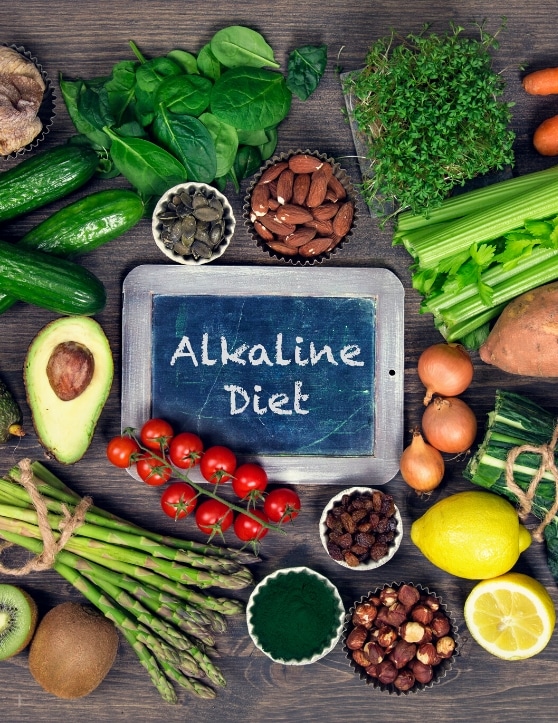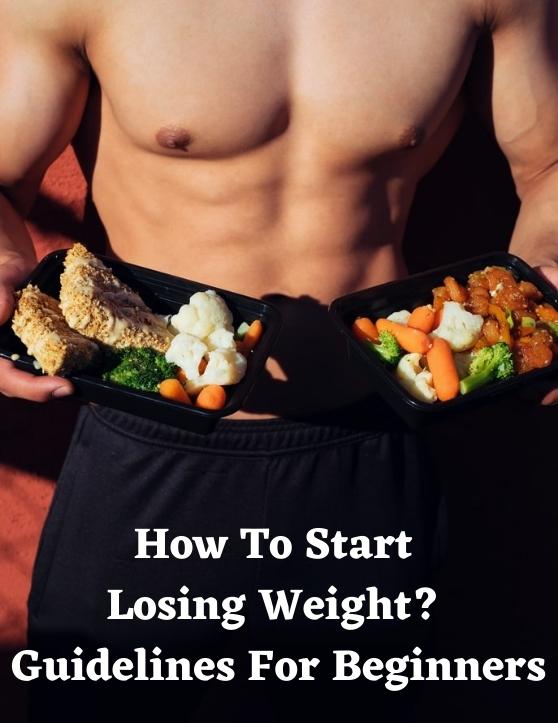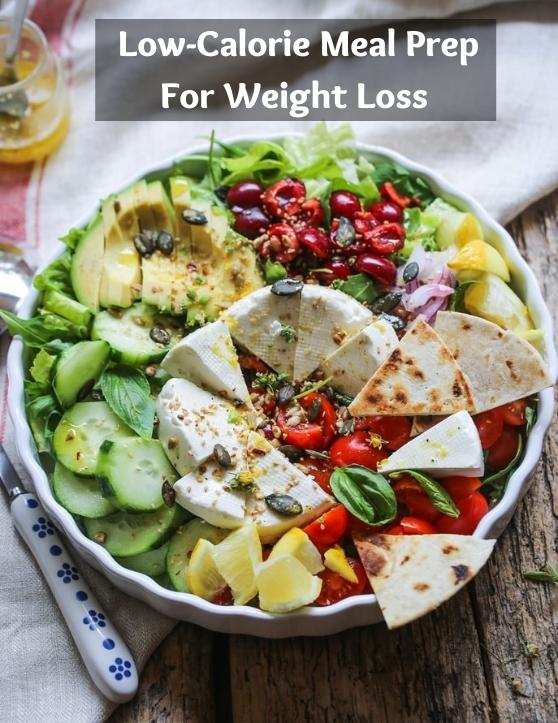Alkaline Diet: Does It Promote Weight Loss?
The alkaline diet is based on the assumption that consuming more alkaline foods instead of acid-forming ones can enhance health and promote weight loss.
The other unsubstantiated premise of the alkaline diet is that consuming more alkaline foods, or meals with a higher pH, can help lower your risk of developing chronic illnesses like cancer, prevent diabetes and preserve muscle mass.
Traditional medicine concurs with this hypothesis, even though it has not been scientifically proven. Let’s investigate whether this idea is correct and how an alkaline diet’s foods can enhance health.
The Alkaline Diet: What Is It?
The alkaline diet is based on the vague idea that some foods make your body produce acid, which is bad for you.
By consuming particular foods or beverages, you might alter the body’s pH levels, also known as acidity. The pH scale (aka Potential of Hydrogen), which ranges from 0 to 14, determines how basic or acidic something is. Anything is alkaline on the basic end of the scale or larger than 7.
The proponents of the alkaline diet claim that altering the body’s pH level can enhance health and promote weight loss.
How Does An Alkaline Diet Work?
The alkaline or acid-ash diet divides meals into categories based on how much acid they produce after digestion. The amount is not always equivalent to foods’ acidity when consumed raw.
According to studies, alkaline foods result in a pH greater than 7, while acid-forming foods produce a pH lower than 7. Foods with a pH of 7 or less are regarded as neutral. Based on this theory, the diet suggests the following:
- Consume a large number of alkaline-forming foods, such as nuts, fruits, vegetables, and legumes
- Avoid acid-producing foods, including meat, dairy, fish, eggs, wheat, and alcohol
- Limit neutral foods like sugars, carbohydrates, and natural fats
Again, there is no evidence that the pH of food has any bearing on general health. In contrast, there is a lot of proof that dietary changes to the body’s pH are not conceivable. The pH levels of different body parts vary; for instance, the stomach must be highly acidic to function.
The various pH levels within the body are carefully controlled, and the kidneys and lungs are primarily in charge of keeping the body’s pH balanced. The pH of blood varies between 7.2 and 7.45. The kidneys also maintain the pH of urine. The urine pH scale ranges from 4 to 9, with 9 being the most strongly alkaline and neutral, respectively.
You can’t alter your body’s pH through eating habits. A simple dipstick test, often known as a urine test strip, can measure your urine’s pH, which you can do if you detect a difference. However, urine pH does not accurately reflect your body’s pH, so this test will not provide you with information about your overall levels. The body’s pH levels may be balanced by excreting more acid through the urine.
A significant medical condition is present when the pH of your body changes. A high pH in the urine could mean kidney stones or an infection of the urinary tract. In contrast, a low pH could mean hunger, diarrhea, or diabetic ketoacidosis.
How To Start An Alkaline Diet?
A highly alkaline diet is primarily plant-based, though you are not required to be a strict vegetarian to follow it.
You should prioritize the following foods:
- The best foods that encourage alkalinity are fresh produce and fruits. Avocado, mushrooms, citrus, spinach, grapefruit, dates, raisins, summer black radish, barley grass, alfalfa grass, kale, jicama, broccoli, oregano, wheat grass, garlic, ginger, endive, cabbage, green beans, celery, red beet, figs, watermelon, and ripe bananas, cucumber, tomatoes, are some of the top selections.
- Lima beans, almonds, navy beans, and most other beans make excellent plant proteins.
- Aqua alkaline.
- Eat raw. Ideally, aim to eat a sizable portion of your produce raw. It is stated that raw fruits and vegetables are biogenic or “life-giving.” Alkalizing minerals are lost during food preparation. Try juicing or mildly boiling fruits and vegetables, and increase your intake of raw foods.
- Alkaline-forming nutrients and chlorophyll are abundant in drinks made from powdered green vegetables and grasses. Chlorophyll helps to alkalize the blood and is structurally comparable to our blood.
- It would help if you also ate seeds, sprouts, wheatgrass, Kamut, fermented soy products like natto and tempeh, and wheat on an alkaline diet.
How Long Should You Do An Alkaline Diet?
The alkaline diet has no defined routine. Most people who adhere to it do so to maintain their alkaline state and feel healthier; however, studies have shown that diet has no real impact on the overall alkalinity of the body.
Can You Lose Weight On The Alkaline Diet?
Lots of fruits and vegetables and plenty of water are recommended as part of the alkaline diet since they are nutritious for you and will help you lose weight healthily. Healthy weight loss advice includes avoiding processed meals, alcohol, and sugar.
Moreover, achieving a healthy weight is crucial for avoiding and treating osteoarthritis and diabetes.
Although alkaline diets promise healthy weight loss since they strongly emphasize fruits and vegetables, exercise is a crucial component of successful weight loss and fitness that is often overlooked. Any healthy eating regimen that you select should incorporate exercise. The CDC and American Heart Association advise a minimum of 150 minutes (i.e., 2.5 hours) of exercise each week.
Hence, if you are considering alkaline diets for weight loss, incorporate physical activities such as aerobics, swimming, cycling, walking, jogging, etc., whichever you are comfortable with.
Is An Alkaline Diet Good Or Bad For You?
The alkaline diet mainly supports regular, healthful eating. The diet suggests eating more fruits and vegetables, drinking lots of water, and avoiding sugar, alcohol, red meat, and processed foods. These activities can help you become healthier, lose weight, and even reduce your risk of developing cancer, but not for the reasons that diet proponents claim.
Furthermore, an alkaline diet might work with your lifestyle if you’re devoted to meal planning and responsible food sourcing. However, for some people, the entry hurdle may be too high.
It takes careful planning to keep the appropriate fruits, vegetables, and grains available (and fresh). Not everyone has access to whole, nutrient-dense foods all year round, which might be expensive. Even alkaline water, which is priced higher, is available.
It is challenging to stick to an alkaline diet by nature. It mostly emphasizes whole, unprocessed foods, which might vary seasonally and occasionally be difficult to find. The cost and work involved in producing these goods are typically higher. The ability to properly organize your alkaline diet and ensure you’re getting the nourishment you need is necessary for it to be sustainable.
The alkaline diet is typically safe for persons without previous medical concerns; however, some people may experience hunger or not obtain enough protein. Along with limiting many bad foods, some nutritious foods are also excluded. Eggs and walnuts are two such nutritious foods that are acidic. Eliminating these foods can make people obsessed and keep them from eating nutrient-dense foods, which we really need.
Eating out, ordering takeout, or grabbing a quick bite at a convenient location may be challenging when on an alkaline diet. And not everyone has the time or the expertise to plan ahead and prepare each meal and snack to ensure appropriate nutrition.
The Key Takeaway
The alkaline diet is now considered a pseudoscience because there is no proof that the acidity or alkalinity of food affects general health or weight. Despite this, the fundamental principles of the alkaline diet – which advocate consuming fewer processed foods and meats in favor of plant-based foods – are sensible.
The alkaline diet has no guidelines for portion management or exercise regimens that the Centers for Disease Control and Prevention advise for disease prevention. Additionally, if you don’t know how to get adequate protein from plant sources, you could experience severe hunger.
On the other hand, restricting junk food and encouraging more plant-based foods may improve your health, but this has nothing to do with the pH levels in your body.
Before attempting the alkaline or any other restrictive diet, consult your healthcare practitioner to ensure you aren’t omitting crucial nutrients or unintentionally endangering your health.
References
https://www.healthline.com/nutrition/the-alkaline-diet-myth
https://www.webmd.com/diet/a-z/alkaline-diets
https://health.usnews.com/best-diet/acid-alkaline-diet







